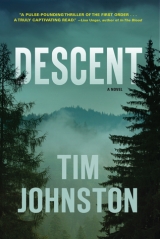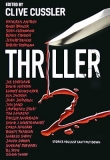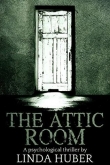
Текст книги "Descent"
Автор книги: Tim Johnston
Жанр:
Триллеры
сообщить о нарушении
Текущая страница: 23 (всего у книги 25 страниц)
64
They came around a final bend and found the El Camino broadside to the road as before and the cruiser beyond it downslope. Both the sheriff and his deputy were breathing harshly. The full moon hung above them on its high sweep, and on the deputy’s wrist a small round face lit from within told them it was just midnight. The deputy unlocked the cruiser and opened the rear door and went to the other side to help the sheriff arrange the girl along the bench seat, her body so meager in the folds of clothes. He saw something protruding from one of the jacket pockets and after a moment understood that it was a shoe. The other running shoe.
“How’s that, Caitlin?” said Kinney. “Can you ride like that?”
She nodded, gazing around the interior as if it were the cockpit of a spaceship. Kinney told the deputy to start up the cruiser and get the heat going, then he had him radio Summit County for ambulances and officers. When that was done the deputy came around again and stood behind the sheriff who was still tending to the girl.
“You want the emergency kit, Sheriff?”
Kinney looked more closely at the wound in the dome light. The blackened curled lip of skin with its bright scarlet fissures. “No, I’d rather spend the time driving toward the EMTs. And anyway I don’t believe we can do much better than what’s been done.” He reached for the belt below her knee and noticed for the first time the silver oval of buckle, the snakehead with its ruby eyes, and for a moment it froze him, as the face of a true viper would. Billy had put it on that morning, or whenever he’d gotten up. Mindlessly fastening the buckle and getting on with his day. Then Kinney thought of the girl’s father, Grant, and the boy Sean, down on the ranch. Going about their day, their night, with no idea, just no idea. He uncinched the belt and watched for the blood to seep from the wound and cinched it again.
What in the hell, he thought. Just what in God’s own hell.
“Sheriff,” she said as he was withdrawing from the cruiser. She’d removed Billy’s glove. She held out her bare fist. He reached in and cupped his hand and the keys dropped into his palm.
“He gave them to me,” she said.
“Okay. You lie still now. We’re gonna get you to the hospital before you can say boo.” He moved to shut the door and again she said, “Sheriff.”
“Yes?”
“I’m sorry. What I did to him.”
He didn’t understand. “Hush, now,” he said. “Don’t talk.”
“Sheriff?”
“Yes?”
“Do you have a phone?”
“There ain’t no signal up here, sweetheart.”
“Can I just hold it?”
He found the phone and she closed her bare hand around it and rested her fist on her chest.
He shut the door and handed Billy’s keys to the deputy. “I need a favor, Donny.”
“Ask it, Sheriff.”
“I need you to stay up here with this car. Just stay here with the shotgun and don’t do nothing else but keep an eye out. If there’s another man up here I don’t want him getting by you, is that clear? You put him down before he gets by.”
“I will, Sheriff.”
“It won’t be long before Summit County gets here.”
“Don’t worry, Sheriff.”
Kinney clapped a hand on the deputy’s shoulder and stepped to the driver’s door, and then stood there, ready to open the door. The deputy hadn’t moved.
“What is it, Deputy?”
The deputy sawed his finger under his nose.
“Donny,” said Kinney.
“She was chained up like a dog in that shack, Sheriff. Looks to me like she did that to herself. With an ax.”
“How do you know?”
“Well, Sheriff.” The deputy looked down. “Hell. There was two feet up there. Human feet. Just lying there. Like shoes. One of hers and one of his. Billy was already dead when it happened, you could tell.”
He looked up again. “Now why would she do a thing like that, Sheriff?”
Kinney studied the dark shape of the girl in the back of his cruiser. Pale oval of face in the shadows. He heard again the sounds they’d heard from the trail: one wooden blow. Then the other. Lord God if only she’d waited fifteen, twenty minutes, he thought. But there was a man up there with a gun and she might not have had twenty minutes or even ten.
He turned back to the deputy. “Why do you reckon she did it, Donny?”
The deputy bumped the barrel of the shotgun against his leg. “I’d say she did it for practice, Sheriff.”
Kinney nodded. “That’s how it looks to me.”
He opened the cruiser door and got in and switched on the headlamps, spilling light once more over the road and the deserted El Camino. He turned to speak to the girl but she was out, the phone still clutched to her chest. He powered down the passenger’s window and told the deputy to look sharp. Told him to be nothing but smart and he would see him later at the hospital, and then the deputy stood to watch the sheriff back the cruiser deftly down the road.
65
The boy fell asleep quickly and all at once and in his sleep he returned to the glen on the mountain where the stone Virgin watched over the crooked stones. There was the coldness of the stone bench and no sound but the chattering aspens, a sound like wind chimes made of bird bones, and in the dream he leaned to search for the tarnished plaque but behind the scrub growth there was only more growth, and he rooted and pulled in despair until something moved at the tree line and he looked up and there she was: black toss of ponytail, bare legs blotched pink and red, the scant shorts and the running shoes all brilliant white in the shaded hollow. She said There you are and pulled up before him winded, hands on hips, her head cocked to one side. She asked him where he’d been and he said he’d been right here, and she asked why and he said because he was waiting for her and she asked why and he said because he didn’t know the way down and she shook her head and said, Dudley, the way down is down. It’s always down. Didn’t you know that? Then she knelt to retie one shoe and as she was doing this something else moved in the woods, some plodding and reckless thing, and she looked up and smiled, and then, like a sprinter in the blocks, she rose and flew, leaping once more into the woods. He tried to follow but when he stepped into the trees there was no sign of her, nor any sign of trail. He stared into the pines and he heard his name, and when he opened his eyes a hand was on his shoulder and a face was hovering in the dark, eyes shining, and he said Don’t, don’t . . . but the words were only in his heart and his father shook him again, almost violently, and said, “Sean, wake up. Wake up. You have to get dressed.”
“Why?” he asked, still in the woods.
“Because they found her.”
He stared at his father in the darkness, his father staring at him.
“How do they know?” said the boy, and his father said, “Because she told them.”
Part V
66
Something was buzzing—a terrific and malevolent insect, a great scarab. It sat wide and hard-shelled on her chest, it sat on her mouth, and she couldn’t breathe; she swung an arm and struck a soft small creature near her head and the animal released a childish, laundered smell and the smell told her where she was, who she was, and when she knew this she knew what the buzzing was and she blindly reached for it, toppling the capped water bottle onto its side, the bottle sending the vial of pills rolling off the table and bouncing on the carpet with the faraway sound of a fallen baby rattle.
She swung out her legs and sat with the phone in her hand, reading the bright small screen. The room faced east and the windows were a deep shade of blue. No idea how long she’d slept. The alarm clock sat blank and pointless, unplugged long ago by her husband. The phone buzzed twice more before she answered.
“Angie,” Grace nearly cried. “Where are you?”
“At the house,” she said thickly. She picked up the water bottle and unscrewed the cap.
“The house?” It took her sister a moment. “What are you doing there?”
“Running the streams.”
“Running the what?”
“The . . . water. Running the water. For the traps.”
“Angie, are you all right?”
“Yes. I’m fine. Why?”
The heat had stopped blowing, the furnace paused. No one, nothing, moved in the house. It felt empty as a museum after even the guards have gone home; the paintings unlit in the vast gloom, gazed at by no one but the white-eyed statues. She looked about her at the posters, the furniture, her daughter’s things; they were losing their power to devastate her. They were becoming like her memories.
“Well,” Grace said, “I’ve been calling. Did you lose your phone, or what?”
Angela could see her sister’s face: the anger and disbelief. The fear. The face of an adult woman whom she loved without question and into whose tiny lungs she had once blown life, a fact that was known but could not
be felt.
“It was in my bag,” Angela said. “I didn’t hear it. I’m sorry, Grace.”
“Well—” said Grace. She took a breath. “How did it go this morning?”
“How did what go.”
“Teaching, Angie. Did you teach?”
“Not really.”
“What does that mean?”
“They sat and read their book. They pretended to. Real teacher-of-the-year stuff.”
There was a long silence. Angela glanced at the screen. “Are you there?”
“I’m here.” Grace’s tone became casual. “Have you been at the house all day?”
“No. I walked around. I rode the bus.”
“You rode the bus?”
“Yes.”
“Where did you go?”
“Nowhere. The library.”
Grace’s son hollered at her from somewhere in the house; she didn’t answer. “Angie,” she said. “I’m coming over.”
“Don’t, Grace. Seriously, I’m fine.” She was putting her things back into the tote bag. Shouldering it. She restored the teddy bear and the ape to their places. Smoothed the duvet.
“Well—are you coming home? I mean, are you coming back for dinner?”
There was the sharp rap of the little brass knocker on the front door downstairs.
“Go ahead and eat without me,” Angela said. “I’ll warm something
up later.”
“But Angie—”
The door swept open and a man called “Hello?”
“I have to go, Grace, someone’s here.”
“Who’s there? Who was that?”
“It’s no one.”
Hard-sole footsteps on the oak floor at the bottom of the stairs. “Angela?”
“I mean it’s only Robert from across the street. He must have seen the light on downstairs.” She stepped out of her daughter’s room and closed the door.
“Angela—”
“I have to go, Grace. I’ll call you back.”
HE HAD SEEN THE light and no car in the drive and had come over to make sure it was her. Or one of them. A good neighbor. Watching her come down the stairs—“Are you all right?”
“Yes, of course. Just checking on things.”
“Is everything all right?”
“It seems to be.”
“Good. Good.” He stood there nodding, looking about in the light from the kitchen. His shirttails out, cuffs turned back. Blue jeans and black loafers. Smiling at her uncertainly. “You look nice,” he said. “Did you teach?”
“Yes. Thank you.”
Nodding. Checking his watch. “Have you eaten?”
She locked up and they crossed the darkened street, their footsteps lost in the scuffling sounds of two boys playing basketball in the spilled light of a garage. April cool but a feeling of the coming summer too, the hardest months. He followed her in and shut the door and offered to take her jacket but she kept it despite the warmth of the room. The air was densely spiced with the roast he’d been cooking for much of the day. He did something with computers and could work from home.
He turned down the music, an opera, and stepped into the large open kitchen and picked up the bottle. “Italian,” he said. “Insanely good.” He poured her a glass and she came to the bright plum color of it and sat in one of the high bar chairs and watched him lifting lids, stirring the steam, giving names to the smells. One thing he’d learned was food. Another was wine, though he wasn’t a bore about it. His hair was gray but had not thinned and there was the cowlick at the front, a springy disobeying forelock he wore long, like something from his youth he couldn’t give up, like something which served him still.
He stirred and spiced and tasted, talking all the while. It might’ve been a summer night with the children chasing fireflies over the back lawn, the dog, a little terrier, yapping in dismay.
Both boys in college now and the terrier, like Pepé, buried under a tree.
“Don’t you like it?”
“Hmm?”
He indicated her glass.
“Oh. No, it’s lovely.” She raised it for a sip.
He had good manners and would not ask after her family nor talk about his boys. He talked about his house and the improvements he would like to make this summer and the Chinese elms he was thinking about planting.
“Do you know a good realtor?” Angela said.
He stopped stirring to look at her. “A realtor?”
“Yes.”
He stood there. The thick, wet blurpings of the sauce. He turned back and began stirring again, but absently.
“I’ve done some work for a couple of them,” he said. “People speak very highly of Leslie Brown. I’ll give you her info.”
“Thank you.”
He checked the roast and lowered the flames under the pots and they took their glasses to the living room. She had always admired Caroline’s taste, and she let herself sink into the deep sofa, fabric the color and fineness of a wheat field in a painting. There had been a time, a very long time, when she could not admire, could not even notice; pleasure lay at the bottom of the sea. She toed the sneakers from her feet and put her head back. Robert joined her on the sofa, crossing an ankle over his knee. On the mantel were the same pictures in their silver frames: Peter and James growing up and grown. He and Caroline much younger. The dog alive. Everybody happy.
The male tenor began to sing, the notes rich and pure.
Robert sipped his wine and held the glass to the light.
“I saw him today,” he said.
“Saw who?” She rolled her head on the sofa back. She was tired. It took her a minute.
“Oh,” she said, and sat up a little. “Where?”
“At the gym. My gym. He has joined, apparently.”
“Oh.” She didn’t know what to say.
“I was just coming out of the steam room and he was just coming in. Five minutes earlier and there we would have been. Like Romans.”
“I’m so sorry, Robert.” She touched his forearm.
“Ah, shit—that’s life, right? You run into the man your wife prefers to sleep with. One day we’ll go for a beer, he and I. Watch a bit of the game. He’ll turn out to be a pretty good egg. Life goes on. Isn’t that the idea?”
“No,” she said. “That’s not the idea.”
He looked at her and his face changed. He uncrossed his leg and turned to her. “I’m sorry, Angela. I’m an idiot. I—”
She shook her head, “No, I didn’t mean that. I was only saying . . . I was only saying I’m sorry, that you had to go through that today.”
“It’s nothing. Christ. It’s so trivial.”
“It’s not nothing,” she said.
He glanced at the mantel and then looked down. He seemed to be studying the sofa, the square of cushion plumped and risen between them like bread.
Outside, in the window, trees reared in a wave of sweeping light, appeared to pirouette, lapsed again into darkness. A man said gently: “Come on, we haven’t got all night.” There was the jingle of shaken tags.
She reached to touch the fallen forelock. Training it back, hopelessly. He looked up. His entire story in those eyes. Story of the world.
“Can we just be quiet for a while?” she said. “Can we just sit here and listen to the music?”
67
They took the blue Chevy, Grant at the wheel, and they smoked and said nothing, staring out at the darkness and the traffic and the signs and the tire tracks in the snow and the setting moon, and she was safe, the sheriff said, she was in no danger. Every mile taking them that much farther from the mountains where’d she gone missing and where all the men and all the searching and all the hours in the world never would have found her, she was fine and resting and they shouldn’t hurry. The lights and the land rushing by at that unreal hour and wondering had she seen this, and this, that day so long ago in the strange car, in broad daylight. They wanted to speak just to know it was real, but they did not trust the sound of their own voices not to rip it all apart, road and mountain and moon and truck, throwing them back to their beds and to the dawn and a heartbreak all the greater for how much they’d believed. And what would they say anyway that they didn’t already know without saying? She was safe, she was resting. There was nothing else to know and nothing to do but to get to her, and when they saw her, when they truly believed in this night, then they would make the phone call, and this too was understood without either of them saying it.
The sheriff didn’t want them driving at that time of night in the mountains; he wanted to send his other deputy down to get them, but the deputy would have been an hour just getting to the ranch and it was that hour that ended the discussion.
Grant followed the sheriff’s directions at least and did not take the Loveland Pass but drove ten miles beyond it and came back from the west on the state highway, and at last they saw the lights of the little resort town and they saw the blue hospital sign and they located the emergency entrance and Grant parked in the first space he saw without reading any more signs and they crushed their cigarettes in the tray and stepped out of the truck.
The sheriff awaited them outside, leaning against the wall near the glass doors, and the sight of him swung Grant back in time to a different hospital, different child, but same sheriff waiting. He and the boy crossed the parking lot and as they stepped up to him the sheriff unleaned himself from the wall and removed his hat that his face not be in shadow, and the gesture stopped them both cold.
“She’s fine,” Kinney said, raising his hand. “She’s just fine.”
“Where is she?” said Grant.
“You can’t see her, not just yet.”
“The hell I can’t.” He took a step and the sheriff caught him by the arm.
“She’s in with the surgeon, Grant.”
“The surgeon. You said she was fine.”
“She is fine. She’s not in any danger. It’s just that, well . . .” He tapped his hatbrim against his leg.
“Joe. Just tell us.”
He told them, there in the humming yellow light, speaking evenly and accurately, and when he was finished Grant and the boy stood still. Kinney tried to imagine what it would be like to be this man before him, this father, hearing such things. His own daughter unconscious within the building. He could not.
At last Grant nodded. He looked at his son and his son nodded too.
“We’ll go in now, Joe.”
“All right. But one more thing.”
They waited.
“She didn’t want to be carried, Grant. After all that, she wanted to come down on her own.” He looked from one to the other, father to son. They stood looking at him, as if expecting him to go on. “That’s all,” he said.
“Did she?” said Grant.
“Did she what?”
“Come down on her own.”
The sheriff looked at him. “Hell no,” he said. “I by God carried her down.”
Grant put his hand on the sheriff’s arm. “I’m sorry about Billy, Joe. I don’t even know what to say.”
Kinney raised his hat and set it on his head. “Me neither.”
Then the boy, who had said nothing, said, “What about the man?” and Kinney looked at him. He was not even recognizable as the boy he’d first seen in a hospital bed himself not very long ago, knee like a purple cannonball.
“I can’t say about him,” said Kinney. “There’s a good twenty lawmen up there now, dogs too, and unless that sonofabitch can fly they’ll track him down.”
Grant hardly heard. He’d already turned toward the glass doors.
THEY HAD WAITED ALL this time and now they waited some more, standing and sitting and standing again, the night-shift nurse tolerant of their pacing and their repeated demands for information, for updates, the sheriff bringing them coffee and stepping out to smoke and talk with other lawmen, the TV in the corner muted and the clock ticking loudly from its place on the wall, ticking off most of an hour before a woman in blue scrubs emerged and came up to them. She was small in her scrubs, her face dark and without makeup and open and kind. She introduced herself as Dr. Robinson and Grant held her hand and said, “How is my daughter?”
She smiled at him and at the boy. “She’s going to be just fine, Mr. Courtland. She’s a strong young woman. But she’s been through a great deal.” Her face grew somber and Grant told her that they’d talked to the sheriff and they knew about her foot, and the doctor nodded and told them more about it: the cleanness of the wound and the undamaged tibia and fibula and how Caitlin had likely saved her own life by cauterizing the blood vessels as she had. A surgeon could hardly have done a better job of it, said the doctor, and she looked at them as if this, above all else, was the brightest fact.
“Can it be reattached?” Grant asked, voicing an idea that, until that moment, had not occurred to him.
“The foot?” She turned to the sheriff, who stood apart, and the sheriff shook his head.
“Even if we had it,” she said, “too much time has passed and the soft tissue is too damaged and, well . . . Dr. Wieland will tell you more precisely when you see him.”
“Dr. Wieland,” said Grant.
Dr. Wieland down in Denver, she explained, was one of the finest podiatric surgeons in the country. He worked on soldiers and he would finish what Caitlin had begun and he would see to a perfect stump.
Grant looked at her. A perfect stump.
She glanced at the clock on the wall and said they would take Caitlin down by ambulance in about an hour.
“Ambulance,” said Grant. “What about a helicopter?”
“She’s in no grave danger, Mr. Courtland. And Dr. Wieland won’t be able to see her until the morning anyway.”
Grant nodded. He and the boy stood waiting.
The doctor looked at them. She looked at the sheriff and she glanced around the waiting room.
“Is Caitlin’s mother here, Mr. Courtland?”
“No, she’s in Wisconsin. I wanted to see her first. Caitlin. I wanted to be sure before I called.”
“I see,” said the doctor. “All right. Well. I need to talk to you a moment before you see your daughter.” She looked gently at the boy and said to Grant, “Perhaps just the two of us would be best?”
“You can tell us both.”
“All right.”
She didn’t have to glance at the sheriff; he’d already left the room. She mated her hands before her and looking into Grant’s eyes she told him that an examination in these cases was automatic and mandatory, and that their examination of Caitlin had shown that she’d been pregnant.
Grant stared at her.
The boy hung his head.
“Where is it?” Grant said.
“It?”
“The child.”
“The pregnancy never came to term, Mr. Courtland. She miscarried.”
“Miscarried.”
“Yes.”
“How long ago?”
“She’s not sure. She thinks last spring.”
The boy looked up.
“She told you that?” Grant said.
“Yes.”
“When?”
“Before we put her under to work on her leg.” She held Grant’s eyes. “She didn’t want you to know, Mr. Courtland. Not out of shame, which is a normal reaction, but because she couldn’t bear the idea of you having to think about it—of having it in your head.” She smiled faintly. “Finally, just before we put her under, she agreed to let me tell your wife.”
The doctor regarded them both. “As I would have told Mrs. Courtland, I believe it’s best for Caitlin that you all know all the facts, here. But she doesn’t need to know that you know, not right now. Do you agree?”
Grant nodded. The boy nodded.
“Is that everything?” Grant said.
The doctor told him that the HIV rapid test had come back negative and that they’d have the confirmation results in two days and that Caitlin would need to be tested again in a few months.
“She’s weak, she’s malnourished,” said the doctor, “but her heart is strong. And so is her head. She wasn’t happy that we wouldn’t keep her awake until you got here.” The doctor smiled, she looked at the clock—then turning back to them with a crease in her brow, she said, “Oh, I meant to ask: who is Dudley?”
In the end there was nothing but a wide birch door and a nickel latch handle, and the doctor closed her brown hand on the handle and it gave a soft click and the door swung in without a sound and she held it open for them to pass, and Grant stepped in first and the boy came behind and they stood in the first bright wave of the room and everything they saw and heard and smelled amid the lights and the machines and the tubes and the propped meager figure in the bed was utterly alien to the girl they expected to see. Yet when they stepped closer and saw the dark hair on the pillow and saw her sleeping face, so gaunt now, aged as theirs were aged and more so for having aged all at once, yet when they saw this face, the years and the machines and the room fell away and they would’ve known her had it been twenty years, had it been a hundred, and the love held back so long became undammed inside them and because they could not fall into her arms with this love they turned and fell without a word into each other’s.
THE EMBRACE, BRIEF AS it was, cost them the moment when the girl, fighting her way into the most painful light, opened her eyes and saw the two men standing there. She did not believe it. She felt the blood so thick and heavy in her veins, the dull drifting of her brain and the tremendous weight of sleep like stones lashed to every part of her and she knew she was drugged and she did not believe what she saw, but the tears came just the same, hot and fast, and she said the word she had waited so long to say.
Daddy, she said.








